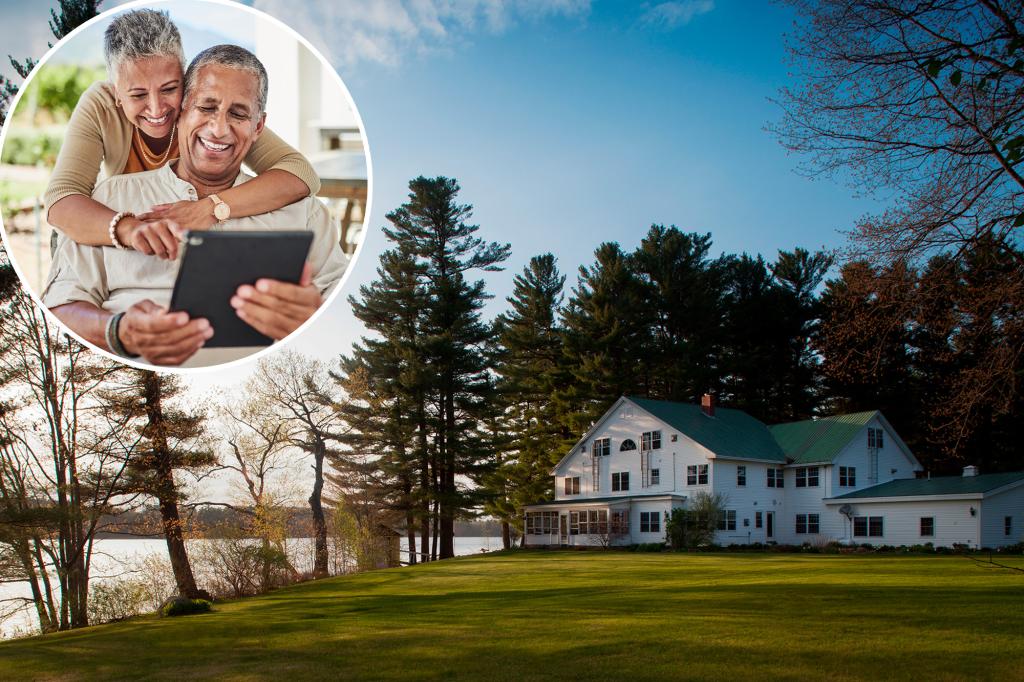Maine Republicans are pursuing a bill that would eliminate property taxes for longtime senior residents. The move could bring financial relief to retirees—but it also raises serious questions about who will cover the cost.
The Pine Tree State ranks 17th in the nation for effective property tax rates, according to the Tax Foundation. It’s a middling position on paper that can hit especially hard for seniors on fixed incomes.
“We have an aging population, and a lot of people on lower income in that age range, and it’s just an incredibly unfair burden to put on them,” House Minority Leader Billy Bob Faulkingham (R-Winter Harbor) told WGME.
But property taxes are the lifeblood of local government, and if seniors are removed from the tax rolls entirely, younger Mainers could be left footing the bill.
What’s in the proposal?
LD 1541 would eliminate property taxes for Maine residents aged 65 and older who have lived in the state for 10 or more consecutive years. The state government would then be responsible for reimbursing local governments for the lost revenue.
It’s just one of several proposals across the country this year to abolish property taxes, which are pinching homeowners of all ages as home values remain elevated and push up tax bills, but it’s unique in its focus on seniors.
For context, the median home in Maine cost just $249,000 in January 2020. Today, it’s nearly doubled, to $462,500. That’s pushed the state’s median annual property tax bill to $4,223, according to Realtor.com® data.
For younger homeowners, that jump in equity can be a financial asset. But for retirees, the resulting spike in property taxes can become a serious burden. The Pine Tree State isn’t alone in this. Nationally, tax burdens are driving older Americans to leave high-tax states in search of more affordable places to age in place.
Maine’s proposal could help stop that outmigration by allowing longtime residents to stay in their homes. But the bill’s financial impact on the rest of the state remains a major question mark.
LD 1541 does not yet include a fiscal note—an official estimate of what it would cost—and Faulkingham has acknowledged that he doesn’t yet have a firm projection.
Still, past efforts and Maine’s demographics suggest the cost could be staggering.
A similar, doomed program
This isn’t the first time Maine has tried to provide property tax relief to seniors in the state. A 2022 program froze qualifying seniors’ property tax bills so they wouldn’t increase year to year as home prices also rose.
That initiative cost the state $26 million and was repealed just 11 months after enactment due to its cost.
In addition to the price tag, critics of the freeze also pointed to loopholes that made it possible for well-off homeowners to apply the homestead exemption to their luxury homes. It’s unclear if similar workarounds would be possible in LD 1541.
Keep in mind, the 2020 initiative simply froze effective rates—meaning that seniors were still responsible for paying some property taxes. The new proposal would eliminate them entirely, threatening a shortfall that could have severe consequences for the rest of the state.
Who will pay the difference?
Part of the difficulty in Maine might be related to the simple fact that it’s home to so many seniors. When measured by median age, Maine is the oldest state in the nation, and nearly a quarter of its population is over the age of 65, according to a 2024 report by the State Economist of Maine.
Nationally, nearly 80% of seniors are homeowners and boomers (those aged between 61 and 79) hold $84 trillion in real estate wealth. Assuming Maine seniors mirror these trends, local governments could lose a substantial portion of their revenue.
And if the state can’t fully cover the shortfall, homeowners under the age of 65 might be left picking up the tab, shouldering higher property taxes in a housing market that’s already unaffordable for many.
An uncomfortable trade-off
Proponents of LD 1541 see it as a lifeline for Maine’s aging population—one that could help longtime residents stay in their homes despite rising costs.
But with no fiscal analysis and few guardrails in place, others worry the proposal could shift the financial burden onto younger generations—especially in a state where nearly one in four residents is over 65.
Without clarity on how the state would reimburse municipalities or offset the potential cost of this proposal, it’s not just a question of whether Maine can afford to help seniors; it’s a question of whether doing so might come at the expense of younger Mainers.
As the bill moves forward, the challenge for lawmakers will be finding a way to support aging Mainers without undermining the financial future of the state they hope to keep calling home.
